- Planning a Corporate Offsite or Group Retreat in South Goa
- Things to Do Nearby While Staying at Nature Trails Rock Valley Resort, Goa
- Why Nature Trails Rock Valley Goa Is the Perfect Eco-Resort Away from Crowded Beaches
- Top Adventure Activities at Nature Trails Rock Valley Goa
- Explore the Western Ghats: A Nature Stay Experience at Nature Trails Rock Valley Goa
- Planning a Relaxing Weekend Getaway to Rishikesh
- A Quick Guide to Staying Near Rajaji National Park in Rishikesh
- Why Nature Trails Chilla Rishikesh Is Ideal for Corporate Offsites in Rishikesh
- Things to Do Near Nature Trails Chilla Rishikesh | Nature, Adventure & Culture
- Best Nature Resort in Rishikesh for a Peaceful Riverside Getaway
- Trade the City Rush for Nature Bliss: Celebrate Christmas & New Year at Nature Trails Sajan
- Bring In This New Year Differently at Nature Trails Kundalika Resort with Kolad Adventure Getaway
- Best New Year Getaway Near Mumbai & Pune | Nature Trails Durshet Resort
- What Makes Winter the Ideal Time for Nature Walks, Campfires & Outdoor Fun
- Winter Solo-Travel Spots Near Mumbai & Pune for Nature Lovers & Adventure Seekers
- Best Couple Adventure Resorts Near Mumbai & Pune for the Perfect Winter Weekend
- Top Forest Adventure Resort Near Mumbai for Winter Holidays with Children
- Top Adventure Resort Near Surat for Safe Outdoor Fun with Kids
- Best Nature Trips Near Surat for Families on a two Day Weekend
- Best Outdoor Activities for Pune Kids To Reduce Screen
- Top Kids-Friendly & Safe Adventure Resorts Near Pune
- Best Nature Resorts Near Navi Mumbai for Quick Family & Friends Escapes
- Best Trekking Trails Near Pune & Mumbai for Beginners and Families
- Why Parents in Mumbai Love Nature Trails Resorts for Screen-Free Family Time
- DINK-Friendly Nature Escapes from Mumbai & Pune Under 4 Hours Drive
- Pet Friendly Getaways Near Nashik & Surat – Escape to Nature Trails Sajan Resort
- Pet Friendly Getaways Near Pune – Escape to Nature Trails Durshet & Nature Trails Kundalika
- Pet Friendly Getaways Near Mumbai | Nature Trails Durshet, Kundalika & Sajan Resorts
- Weekend Getaway with Kids: Safe Family Kayaking at Nature Trails Resorts Near Mumbai, Pune & Surat
- Discover Adventure and Learning at the Best School Picnic Resorts near Khopoli
- Unforgettable Experiences Await: School Picnic Resorts in Palghar
- Adventure Activities in Kundalika, Kolad
- Adventure Activities in Durshet, khopoli
- Adventure Activities in Sajan, Vikramgad
- Where Paws Meet Adventure: Pet-Friendly Adventure Resorts In Sajan
- Romantic Activities for Couples Near Mumbai, Pune & Surat: Serene Retreats at Nature Trails Resorts
- Perfect Pet-Friendly Resorts Near Mumbai, Pune & Surat: Adventures and Safety at Nature Trails
- Safe Family Adventures With Peace of Mind: A Family Guide to Adventure at Nature Trails Resorts
- Corporate Offsites: Why Winter in Maharashtra is Perfect
- From Diwali to New Year: Celebrate the Festive Season Amidst Nature
- The Ultimate Winter Trekking Spots Near Mumbai, Pune & Surat
- Festive Family Holidays: Kid-Friendly Outdoor Experiences at Nature Trails Resorts
- Why Winter is the Best Time for Adventure Sports at Nature Trails
- Weekend Getaways from Mumbai & Pune for a Different Festive Celebration This Year
- Adventures that Strengthen Family Bonds – Trekking & Teamwork at Nature Trails
- Scenic Forest Bathing for Urban Stress Relief – Why Nature Trails is the Perfect Escape
- Scenic Drives from Mumbai & Pune: Monsoon Road Trips That Feed the Soul
- Thrill Meets Tranquillity Near Mumbai & Pune
- Rural Immersion Near Mumbai: A Soulful Return To Village Life
- Waterfalls, Forests & Adventure Escapes In Maharashtra
- Birdwatching Bliss: Discover Hidden Birdwatching Wonders in Maharashtra
- Romantic Escapes Near Mumbai & Pune: Where Love Meets Lush Greenery
- Sizzle of the Pan: Evening Campfires with Maharashtrian Tapri Snacks
- Rain-Kissed Recipes: Traditional Maharashtrian Dishes You Must Try This Monsoon
- Vada Pav with a View: Maharashtra’s Favourite Snack, Reimagined in the Wild
- From Farm to Frying Pan: Monsoon Snacks Made Fresh in Rural Maharashtra
- Chai & Bhajiya Trails: The Monsoon Combo Every Mumbaikar Swears By
- Beyond Imagicaa: 10+ Tourist Attractions & Nature Escapes Near Khopoli
- STEM in the Wild: Outdoor Science Adventures with Nature Trails
- Building Tomorrow’s Leaders: Leadership Skills Through Outdoor Challenges
- Eco-Warriors in Training: Instilling Environmental Awareness Through Experience
- From Campfires to Confidence: Personal Growth in the Great Outdoors
- Warli & Wellness: Rural Art Meets Inner Peace
- Digital Detox: Reconnect with Nature at Durshet
- Explore the Rich History of Maratha Forts in Vikramgad
- Kayaking Through Kundalika: Maharashtra’s Refreshing Water Adventure
- Nature Walks and Wellness: Reconnect with Yourself in Durshet
- Beyond the Rapids: Exploring Kundalika’s Serene Trails
- Elevated Living: The Tree Top Experience at Nature Trails Sajan
- Weekend Getaway: Rejuvenate at Durshet’s Nature Resorts
- Sajan: Where Nature and Tribal Heritage Thrive Together
- Monsoon Magic in Durshet: Trails, Rain, and a Raw Kind of Getaway
- Cultural Immersion: Exploring Tribal Heritage in Sajan, Maharashtra
- Where the River Slows Down, the Soul Follows: Fishing Along the Kundalika River
- Whispers of the Western Ghats: Durshet’s Hidden Forest Trails
- Family Bonding Amidst Nature: Top Activities in Durshet
- Monsoon Escapes: Experience the Magic of Kundalika
- Beyond the Classroom: How Nature Trails Transforms Learning into Adventure
- Monsoon Escapes Near Mumbai & Pune: Where Green Heals and the Rain Sings
- Weekend Getaways Near Pune in Summer with Swimming Pools and Outdoor Fun
- Summer Holiday Packages from Mumbai & Pune with Kids’ Activities
- Cultural Immersion: Traditional Experiences in Maharashtra's Rural Villages
- Exploring Local Cuisine at Nature Trails Resorts
- Detox Weekends: Rejuvenating Nature Escapes Near Mumbai
- Mindfulness Walks
- Yoga Retreats in Nature
- Forest Bathing
- Multi-Generational Travel
- Organizing the Perfect Group Camping Trip
- Capturing Nature's Beauty
- Sunset Seekers
- Macro Photography Guide
- Time-Lapse Tips
- Team Building in Nature
- Family-Friendly Nature Trails
- Leave No Trace: Eco-Friendly Hiking Tips
- Green Getaways: Eco-Friendly Accommodations at Nature Trails Resorts
- Conservation Efforts: Protecting Maharashtra's Biodiversity
- Sustainable Travel: How Nature Trails is Promoting Responsible Tourism
- Hidden Gems Near Mumbai: 10 Unexplored Nature Trails
- Best Hiking Routes in Maharashtra for Beginners
- Top 5 Waterfalls to Visit Near Pune During the Monsoon
- Birdwatching Paradise: A Guide to Sajan's Diverse Avian Life
- Monsoon Magic : Best Nature Trails to Explore During the Rainy Season
- Summer Escapes: Coolest Nature Retreats Near Mumbai and Pune
- Top Adventure Activities for Educational Institutions to Build Team Spirit
- Why School Picnics in Nature Are the Perfect Break from Classroom Learning
- The Best Choice for Corporate Outings Near Mumbai and Pune
- Top 5 Must-Try Activities at Sterling Nature Trails
- 5 Adventure Activities to Try During Your Day Picnic at Sterling Nature Trails
- Day Picnic Ideas for Families, Couples, and Corporates
- Weekend getaways Trips ,Travel Near Mumbai & Pune at Nature Trails
- Connect with Nature: Discovering Serenity at Nature Trails
- Beat the Heat: Exploring Thrilling River Activities on Kundalika
- Make the Most of Your Blissful Retreat with Nature Trails
- Nature and Adventure Combined: Resorts Near Mumbai Perfect for Outdoor Lovers
- Capture and Cherish: A Day Trip to the Stunning Pune Resort
- River Rafting for Team Building at Nature Trails
- Top Midweek Getaways Near Mumbai for a Quick Escape
- Why Workation is the New Trend: Find the Best Resorts near Mumbai and Pune
- Sustainable Travel Guide: Best Eco-Friendly Resorts Near Pune for Monsoon Retreats
- Best Family-Friendly Weekend Destinations Near Pune and Mumbai
- Nature Trails: Best Eco-Friendly Retreats Near Mumbai
- Exploring the Best Kayaking Spots in Maharashtra: A Guide for Adventure Enthusiasts
- Top 5 Must-Try Activities near Mumbai and Pune
- River Rafting Safety Tips to Ensure a Fun and Secure Experience in Pune
- Building Leadership Skills through Nature Trails Programs
- Empowering Students Through Environmental Awareness Programs
- The Benefits of Educational Field Trips for Students of all ages
- Outdoor Learning: A Game-Changer for School and College Education
- Corporate Training Programs with a Twist Amidst Nature
- Boost Employee Engagement with Nature Trails' Corporate Programs
- Family Fun Day:Kid-Friendly Day Outing Places Near Mumbai & Pune
- Rebalance Amidst Nature: Top Picnic spots near Pune and Mumbai
- Weekend Getaways for Couples and Family near Mumbai, Pune
- 10 Fun-Filled Activities for Families with Kids Under 10
- Perfect family escapes to enjoy with your little ones
- Seasonal escapes: Each season has something special for you
- Growing & Developing with Nature - Perfect Summer Camp Activity
- Maharashtra's Water Activities Adventure Escapes
- Give Your Team a Breather: Perfect Corporate Outing near Mumbai & Pune
- Wild Wanderlust: Exploring Nature Trails in Mumbai & Pune
- Trailblazing Adventures: Mumbai & Pune Nature Trails
- Explore & Return: One Day Trips Mumbai & Pune
- Adventure & Relaxation: Resorts Near Imagica Khopoli
- Thrilling Rapids: River Rafting in Maharashtra
- Create Magical Moments with Your Family at Nature Trails
- Enjoy Picnics with a View at Nature Trails
- Cherish Romance amidst Serenity at Nature Trails
- Rediscover Balance: Top 10 Nature Trails for Soulful Journeys
- Best Family Weekend Trips from Mumbai and Pune
- Strategic Retreats: Choosing the Perfect Corporate Outing Resort
- Adventure Awaits: Exploring School Trips Together
- Perfect One-Day Picnic Getaways near Mumbai and Pune
- Thrills on the Rapids: Unveiling the Best River Activities Spots
- Exploring Khopoli: History, Heritage, Adventure
- Embark on Thrilling Team Outings with Nature Trails Resorts
- Exploring Sajan in Vikramgad with Nature Trails
- A Beginner's Guide to Exploring Nature Trails: Where to Start
- Nature Trails Resorts: Top adventure resort near Mumbai and Pune
- Autumn Adventures: Exploring Maharashtra's Changing Landscapes
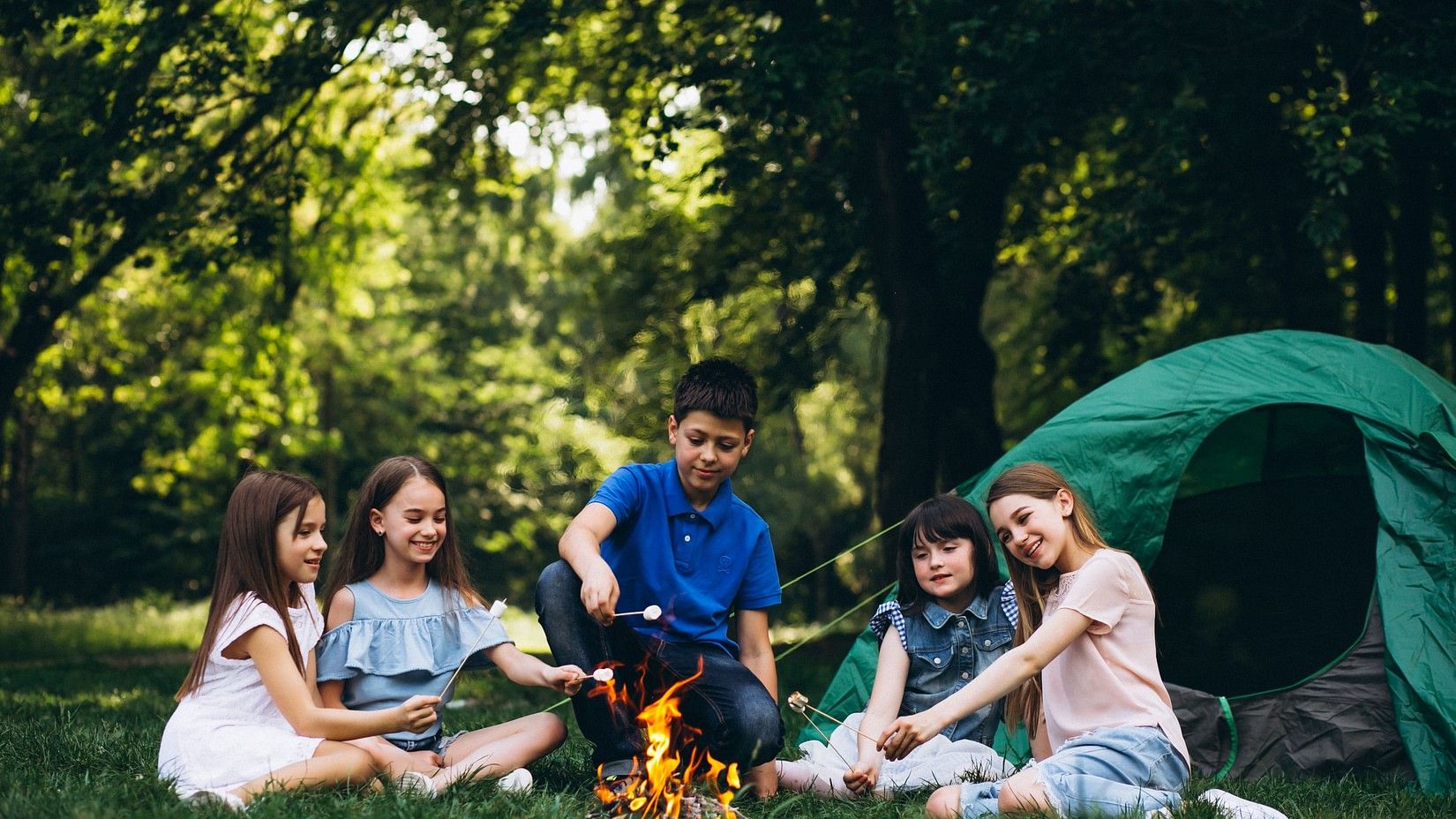
In recent years, outdoor education has seen a significant rise in popularity, supported by the National Education Policy (NEP) 2020. The NEP emphasizes the importance of experiential learning and encourages institutions to adopt innovative teaching methods. One of the initiative of the NEP is the promotion of "bagless days." These days encourage students to engage in outdoor activities that foster hands-on learning. Outdoor learning activities complement traditional classroom learning. It also promotes personality development, teamwork, and a deeper connection with nature.
By participating in real-world scenarios, students cultivate critical thinking and creativity. They also develop essential life skills. As educational institutions align with the NEP goals, outdoor education emerges as a transformative approach. It prepares students for the challenges of the future through holistic learning.
Tradition vs. Outdoor Learning: The Transformative benefits of Nature-Based activities for School and College Students
Traditional education has long relied on classroom-based instruction. Students typically learn through lectures, textbooks, and exams. While this method provides a structured environment for foundational knowledge, it can be limiting. As our understanding of effective learning evolves, we recognize the need for more engaging methods.
In contrast, outdoor learning offers a dynamic alternative. It enhances traditional learning by breaking classroom boundaries. Students engage directly with their environment through hands-on activities. This approach reinforces theoretical concepts while fostering critical thinking, problem-solving, and creativity—skills crucial in today’s fast-changing world. Research supports the benefits of outdoor education. A study published in the Journal of Learning Outside the Classroom found that outdoor learning improves memory retention by 25%, compared to traditional methods. When students are physically active and engaged with nature, they absorb information more effectively than through passive learning.
Moreover, outdoor learning promotes mental and physical well-being. According to a University of Essex study, exposure to nature can reduce stress levels by 30% and improve mood. This leads to better academic performance. Additionally, outdoor activities such as hiking or team-building exercises contribute to healthier minds and bodies. This combats the sedentary lifestyle associated with classroom-based learning.
The Centers for Disease Control and Prevention (CDC) reports that only 24% of high school students meet aerobic physical activity guidelines. Outdoor learning activities help address this issue by creating active learning environments.
Another significant advantage of outdoor education is its ability to foster essential life skills. Unlike traditional education, which often focuses on individual achievement, outdoor learning emphasizes teamwork, communication, and leadership. A study by the National Outdoor Leadership School found that students in outdoor programs improved their leadership abilities by 70% compared to peers in traditional settings.
These experiences teach students to collaborate, navigate challenges, and make decisions in real time. Outdoor learning also builds a sense of responsibility toward the environment. While traditional education has its strengths, outdoor learning offers benefits that complement and enhance conventional methods.
By integrating outdoor education into curricula, schools can address the limitations of classroom learning. It offers a more holistic, engaging, and effective approach. As outdoor education gains global recognition, adopting these practices can give institutions an edge. Programs like Nature Trails' outdoor learning initiatives equip students with valuable skills and experiences, preparing them for the challenges of the future.
This version maintains the content’s core message while optimizing it for readability and SEO. The shorter sentences help improve search engine rankings and make the text more digestible for readers.
Nature Trails: Renovating Learning Methods for Schools and Colleges
As education continues to evolve beyond conventional methods, Nature Trails stands as a leading advocate for integrating outdoor learning into school and college curricula. Nestled amidst scenic landscapes, just a short drive from Mumbai and Pune, Nature Trails offers exceptional outdoor learning programs in Durshet, Sajan, and Kundalika designed to complement and enhance traditional classroom instruction.
By incorporating these innovative programs, educational institutions can provide students with enriching hands-on experiences that foster experiential learning, promote cognitive development, and enhance mental and physical well-being. Nature Trails’ focus on experiential learning allows students to actively engage with their surroundings, encouraging critical thinking and creativity.
Moreover, these programs emphasize the development of essential life skills such as teamwork, communication, and leadership. Embracing Nature Trails’ outdoor education initiatives allows schools and colleges to create a holistic learning environment that equips students with the skills they need to navigate the challenges of today’s world effectively.
The Concept of Nature Trails Educational Programs
Nature Trails' educational programs are designed to give students immersive learning experiences in the great outdoors. These programs emphasize the benefits of outdoor learning by helping students build essential life skills like resilience, leadership, and environmental stewardship.
By participating in college outdoor activities and green learning programs for schools, students not only connect with nature but also develop critical thinking and problem-solving abilities..
Some of Nature Trails' Outdoor Education Programs are as follows:
- The Ultimate Survivor: This program focuses on self-defence training and survival skills, such as building shelter, making fire, and foraging for food. It also includes first aid and emergency response training. By tackling resilience and adaptability challenges, such as survival cooking, students enhance their ability to handle pressure and develop confidence.Rock Climbing & Rappelling challenge your physical limits, rewarding you with a sense of accomplishment and breathtaking views.
- International Award for Young People: Designed for a more adventurous experience, this multi-day expedition includes hiking, backpacking, and mastering camping essentials. Students learn to navigate with topographic maps and natural landmarks, fostering a strong connection with nature and honing their wilderness survival skills. This program is ideal for those seeking to expand their horizons through practical, nature-based learning.
- First Responders: This program emphasizes leadership and decision-making, teaching students to remain calm under pressure and act decisively. By developing skills for college and beyond, such as critical thinking and stress management, students are prepared to make a positive impact in their communities.
- Nature Ninja: Targeted at younger students, this program fosters environmental awareness and outdoor skills. Through eco-exploration and teamwork activities, children become confident in their ability to navigate nature and develop leadership qualities. This program is a great way for young learners to build a strong foundation in environmental stewardship and collaboration.
- Ice Breaker: Perfect for introducing students to outdoor learning, this program combines guided hikes with practical wilderness skills like shelter building and fire safety. Students also engage in creative projects using natural materials, promoting conservation and teamwork while enjoying a fun, educational experience.
Integrating Outdoor Learning into School and College Curriculum
Outdoor education can be seamlessly integrated into existing school and college curricula to enhance the learning experience. By incorporating outdoor programs into academic schedules, educational institutions can offer students a balanced blend of classroom learning and experiential education. This approach not only enriches the curriculum but also fosters a lifelong love of learning and exploration.
Getting Started with Nature Trails
Schools and colleges interested in incorporating outdoor education into their programs can easily get started with Nature Trails. The booking process is straightforward, and our team is dedicated to providing a tailored experience that meets the specific needs of each educational institution. For more information and to schedule your outdoor education program, please refer to our website.
Conclusion
Outdoor learning offers a wealth of benefits that go beyond traditional classroom learning. Nature Trails’ innovative programs provide schools and colleges with an opportunity to enrich their educational offerings through immersive, adventure-based learning. By embracing outdoor education, educational institutions can foster essential life skills, boost confidence, and offer students a refreshing break from routine.
Empower your students with experiential learning! Partner with Nature Trails today and discover the benefits of outdoor learning for your institution.
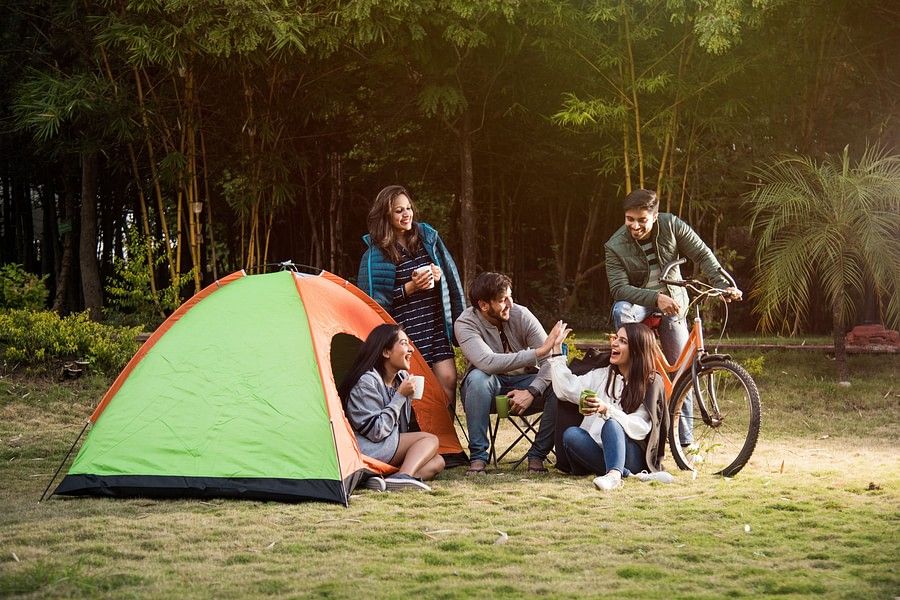
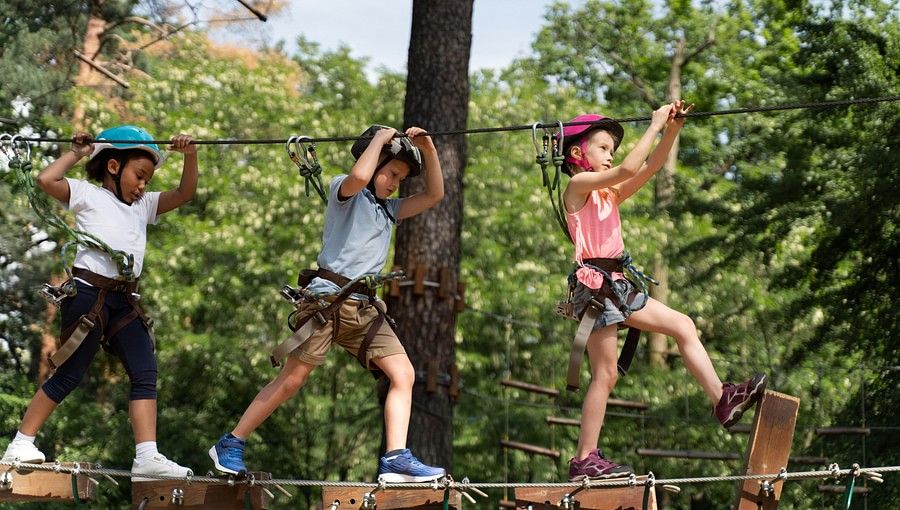
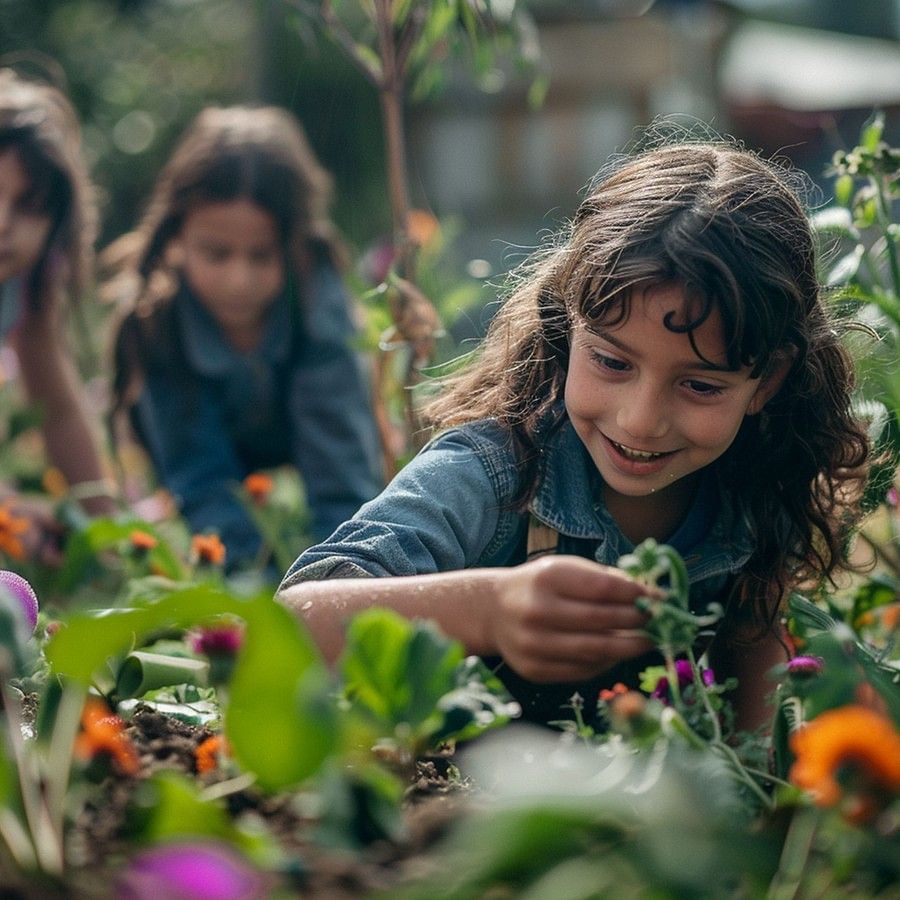

)

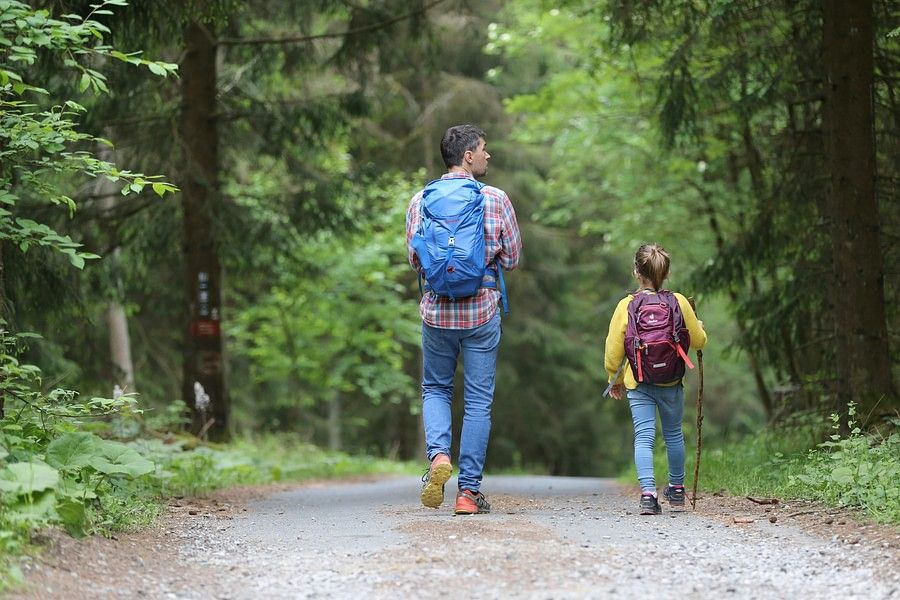
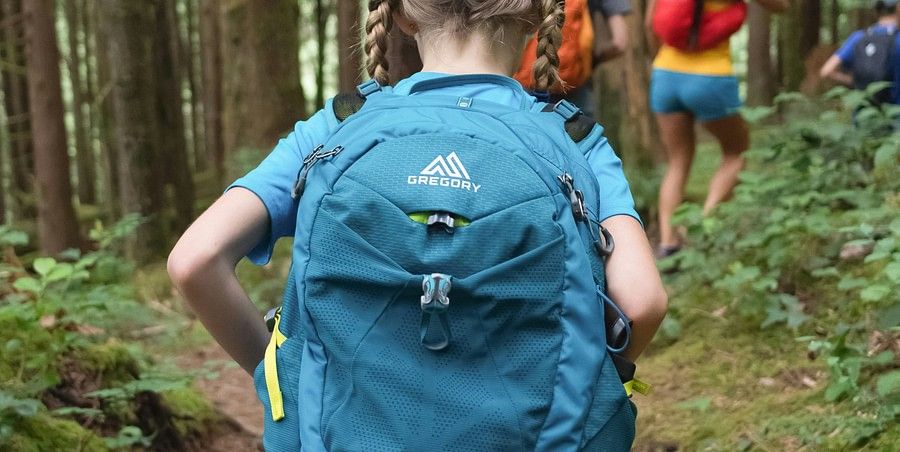

)

